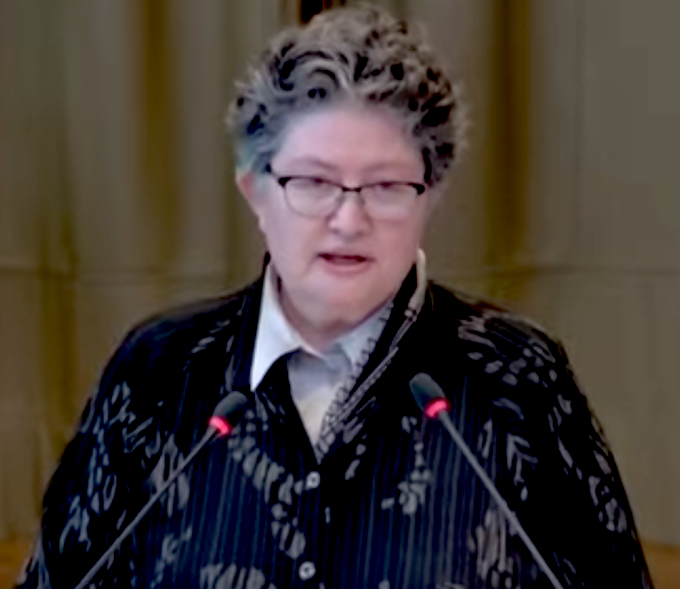
By Sondos Asem in The Hague, Netherlands
The International Court of Justice began hearings today into Israel’s obligations towards the presence and activities of the UN, other international organisations and third states in occupied Palestine.
The case was prompted by Israeli bills outlawing the UN agency for Palestinian refugees (Unrwa) in October 2024, an event that sparked global outrage and calls for unseating Israel from the UN due to accusations that it violated the founding UN charter, particularly the privileges and immunities enjoyed by UN agencies.
The ICJ hearings coincide with Israel’s continued ban on humanitarian aid to the Gaza Strip since March 2 — more than 50 days — and the intensification of military attacks that have killed hundreds of civilians since the collapse of ceasefire on March 18.
- READ MORE: Israel using aid as ‘weapons of war’, Palestinian envoy tells ICJ
- Other Israeli war on Palestine reports
It will be the third advisory opinion case since 2004 to be heard before the World Court in relation to Israel’s violations of international law.
About 40 states, including Palestine, are presenting evidence before the court between April 28 and May 2. Israel’s main ally, the United States, is due to speak at the Peace Palace on Wednesday, April 30.
However, Israel is not presenting oral submissions, only a written presentation, and Israeli Foreign Minister Gideon Sa’ar denounced the hearings as “anti-Israel’ and “shameful”.
The hearings follow the resolution of the UN General Assembly on 29 December 2024 (A/RES/79/232), mainly lobbied for by Norway, requesting the court to give an advisory opinion on the following questions:
“What are the obligations of Israel, as an occupying Power and as a member of the United Nations, in relation to the presence and activities of the United Nations, including its agencies and bodies, other international organisations and third States, in and in relation to the Occupied Palestinian Territory, including to ensure and facilitate the unhindered provision of urgently needed supplies essential to the survival of the Palestinian civilian population as well as of basic services and humanitarian and development assistance, for the benefit of the Palestinian civilian population, and in support of the Palestinian people’s right to self-determination?”
Middle East Eye’s live coverage of the ICJ hearings.
The UNGA’s request invited the court to rule on the above question in relation to a number of legal sources, including: the UN Charter, international humanitarian law, international human rights law, privileges and immunities of international organisations and states under international law, relevant resolutions of the Security Council, the General Assembly and the Human Rights Council, as well as the previous advisory opinions of the court:
- the opinion of 9 July 2004 which declared Israel’s separation wall in occupied Palestine illegal; and
- the 19 July 2024 advisory opinion, which confirmed the illegality of Israel’s occupation of Palestinian territory and Israel’s obligation as an occupying power to uphold the rights of Palestinians.
‘Nowhere and no one is safe’
Swedish lawyer and diplomat Elinor Hammarskjold, who has served as the UN’s Under-Secretary-General for Legal Affairs and its Legal Counsel since 2025, opened the proceedings.
“Under international law, states are prohibited from acquiring territory by force,” Hammarskjold said in her opening comments.
She explained that Israel was not entitled to sovereignty over the occupied territories, and that the Knesset rules and judgments against UNRWA “constitute an extension of sovereignty over the occupied Palestinian territories”.
“Measures taken on basis of these laws, and other applicable Israeli law in occupied territories is inconsistent with Israel’s obligations under international law,” she concluded.
She further outlined Israel’s obligations under international humanitarian law as an occupying power and obligations under the UN Charter, emphasising that it has a duty to ensure the safety of both the Palestinian people and UN personnel.
Palestine’s ambassador to the UN, Ammar Hijaz accused Israel of using humanitarian aid as “weapons of war”.
He told the court that Israel’s efforts to starve, kill and displace Palestinians and its targeting of the organisations trying to save their lives “are aimed at the forcible transfer and destruction of Palestinian people in the immediate term”.
‘Children will suffer irreparable damage’
In the long term, he said, “they will also ensure that our children will suffer irreparable damage and harm, placing an entire generation at great risk”.
Irish lawyer, Blinne Ni Ghralaigh, who is representing Palestine, outlined Israel’s obligations as a UN member, including its obligations to cooperate with the UN and to protect its staff and property, as well as to ensure the fundamental rights of the Palestinian people, and to abide by UN resolutions and court orders.
“Israel’s violations of these obligations are egregious and ongoing,” Ghralaigh told the court.
- The hearings are ongoing until Friday.
Sondos Asem reports for the Middle East Eye. Republished under Creative Commons.



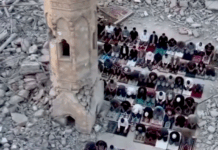
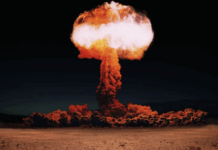

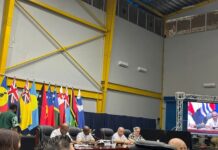

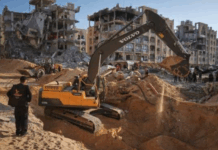




















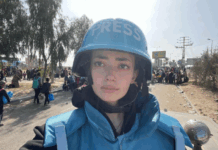
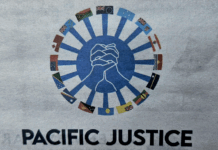
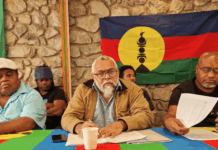




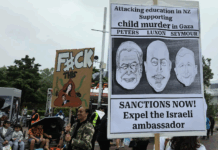








![Mediawatch: Talley’s vs TVNZ in defamation confrontation "News organisations don't often end up in court for [defamation], but when they do it's big news."](https://asiapacificreport.nz/wp-content/uploads/2025/10/Defamation-case-TVNZ-680wide--100x70.png)
